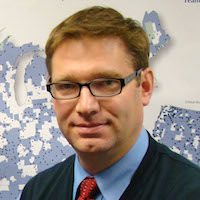Aspiring to Predict and Prevent the Next Pandemic
2:35-4:35 p.m.
The William and Ida Friday Center for Continuing Education
This session will be livestreamed. Join virtually; this event is free and open to the general public.

Dr. Lisa M. Koonin
2:35-2:40 p.m.
Session Host and Moderator: Lisa M. Koonin, DrPH, MN, MPH, Deputy Director, Influenza Coordination Unit, National Center for Immunization and Respiratory Diseases, U.S. Centers for Disease Control and Prevention
2:40-3 p.m.
“Pandemic Influenza: Global Health Meets Global Health Security”
Bruce Gellin, MD, MPH, President, Global Immunization, Sabin Vaccine Institute

Dr. Bruce Gellin
Bruce Gellin, MD, MPH, previously served as the Deputy Assistant Secretary for Health and as the Director of the National Vaccine Program Office, both in the U.S. Department of Health and Human Services (HHS), where he was the principal adviser to the Assistant Secretary for Health on vaccine and immunization programs and policies. Dr. Gellin also represented HHS as a technical and policy adviser to the World Health Organization (with a focus on influenza and vaccine hesitancy) and as a contributor to the Decade of Vaccines Collaboration and the Global Action Vaccine Action Plan. Dr. Gellin founded and served as Executive Director of the National Network for Immunization Information, worked as a Medical Officer at the National Institute of Allergy and Infectious Diseases, served as an Epidemic Intelligence Service officer at the Centers for Disease Control and Prevention and was a Luce Scholar in the Philippines.
Selected publications:
- Gellin, B. G., Shen, A. K., Fish, R., Zettle, M. A., Uscher-Pines, L., & Ringel, J. S. (2016). The national adult immunization plan: strengthening adult immunization through coordinated action. American Journal of Preventive Medicine, 51(6): 1079-1083.
- Gellin, B. G., & Qadri, F. (2016). Preparing for the unpredictable: The continuing need for pandemic influenza preparedness. Vaccine, 34(45): 5391-5392.
- Nowak, G. J., Gellin, B. G., MacDonald, N. E., & Butler, R. (2015). Addressing vaccine hesitancy: the potential value of commercial and social marketing principles and practices. Vaccine, 33(34): 4204-4211.
3-3:20 p.m.
“The National Collaborative for Bio-Preparedness (NCBP)”
Mark Holmes, PhD, Director, Cecil G. Sheps Center for Health Services Research; Professor, Health Policy and Management, UNC Gillings School of Global Public Health

Dr. Mark Holmes
Mark Holmes, PhD, also directs the North Carolina Rural Health Research and Policy Analysis Center and co-directs the Program on Health Care Economics and Finance at the Cecil G. Sheps Center for Health Services Research. His interests include hospital finance, rural health, workforce, health policy and patient-centered outcomes research. In 2014, he received the Phillip and Ruth Hettleman Prize for Artistic and Scholarly Achievement by Young Faculty. In 2015, he was named an Outstanding Researcher by the National Rural Health Association. Previously, Dr. Holmes was Vice President of the North Carolina Institute of Medicine, and he previously served on the board of the North Carolina Health Insurance Risk Pool. His state policy work led to his 2010 Health Care Hero “Rising Star” award from the Triangle Business Journal.
Selected publications:
- Holmes GM, Fraher EP. Developing physician migration estimates for workforce models. Health Services Research. 2017; 52 Suppl 1:529-545.
- Whitaker RG*, Holmes GM, Pink GH. How Would Rural Hospitals Be Affected by Loss of the Affordable Care Act’s Medicare Low-Volume Hospital Adjustment? J Rural Health. 2017; 33(2):227-233.
- Thomas SR, Holmes GM, Pink GH. To What Extent do Community Characteristics Explain Differences in Closure among Financially Distressed Rural Hospitals? J Health Care Poor Underserved. 2016; 27(4A):194-203.
3:20-3:40 p.m.
“Using Digital Tools and Citizen Science for Pandemic Surveillance, Prevention and Preparedness”
John Brownstein, PhD, Chief Innovation Officer, Boston Children’s Hospital; Professor, Biomedical Informatics, Harvard Medical School

Dr. John Brownstein
John Brownstein, PhD, also directs the Computational Epidemiology Lab and the Innovation and Digital Health Accelerator, both at Boston Children’s Hospital. He has been at the forefront of developing and applying data mining and citizen science to public health. His efforts are in use by millions each year, including the Centers for Disease Control and Prevention, the World Health Organization, the U.S. Department of Homeland Security, the Department of Defense, the Department of Health and Human Services and the European Union. Brownstein has been recognized by the National Library of Congress and the Smithsonian Institution for his work. His research has been reported on widely, including pieces by the New England Journal of Medicine, Science, Nature, The New York Times, The Wall Street Journal, CNN, National Public Radio and the BBC. He was awarded the Presidential Early Career Award for Scientists and Engineers, as well as the Lagrange Prize for international achievements in complexity sciences. Dr. Brownstein also serves as Uber’s healthcare advisor and is a co-founder of the digital health companies Epidemico and Circulation.
Selected publications:
- Lu FS, Hou S, Baltrusaitis K, Shah M, Leskovec J, Sosic R, Hawkins J, Brownstein J, Conidi G, Gunn J, Gray J, Zink A, Santillana M. Accurate Influenza Monitoring and Forecasting Using Novel Internet Data Streams: A Case Study in the Boston Metropolis. JMIR Public Health Surveill. 2018 Jan 09; 4(1):e4.
- Brownstein JS, Chu S, Marathe A, Marathe MV, Nguyen AT, Paolotti D, Perra N, Perrotta D, Santillana M, Swarup S, Tizzoni M, Vespignani A, Vullikanti AKS, Wilson ML, Zhang Q. Combining Participatory Influenza Surveillance with Modeling and Forecasting: Three Alternatives
- Schwind JS, Norman SA, Karmacharya D, Wolking DJ, Dixit SM, Rajbhandari RM, Mekaru SR, Brownstein JS. Online surveillance of media health event reporting in Nepal: digital disease detection from a One Health perspective. BMC Int Health Hum Rights. 2017 Sep 21; 17(1):26.
3:40-4 p.m.
“The Intersection of Pandemics and Biopreparedness”
Greg Evans, PhD, MPH, Professor, Environmental Health, and Dean, Jiann-Ping Hsu College of Public Health, Georgia Southern University

Dr. Greg Evans
Greg Evans, PhD, MPH, has more than 20 years’ experience in environmental epidemiology, with an emphasis on environmental toxins, bioterrorism, pandemic preparedness and disaster preparedness. He has worked with local health departments, the Centers for Disease Control and Prevention and the Environmental Protection Agency on developing bioterrorism and emergency preparedness curricula for health professionals, first responders and corrections professionals. Prior to his appointment at Georgia Southern University, Dr. Evans was Chair of the Department of Community Health and Director of the Institute for Biosecurity at Saint Louis University. His most recent research interest is recovery from alcohol and drug addiction. Through this work, he supports the mission of the Center for Addiction Recovery at Georgia Southern University by serving students in long-term recovery. He has authored more than 65 publications, made numerous national presentations and consults internationally on civilian bio-defense issues, including pandemic preparedness.
Selected publications:
- Evans, R.G. Biological Toxins in Warfare and Terrorism (2009). General and Applied Toxicology. doi: 1002/9780470744307.gat134
- Wray, RJ, Kreuter, MW, Jacobsen, H, Clements, B, Evans, RG. The role of communication in public health preparedness: Recommendations for response in the event of an attack with radiological, biological or chemical weapons. Journal of Family and Community Health. 27:232-241 2004.
4-4:20 p.m.
“Economic Impact of Pandemics”
Martin Meltzer, PhD, MSc, Lead, Health Economics and Modeling Unit; Distinguished Consultant, Division of Preparedness and Emerging, U.S. Centers for Disease Control and Prevention (CDC)

Dr. Martin Meltzer
Martin Meltzer, PhD, MSc, received an undergraduate degree from the University of Zimbabwe in 1982 and master’s and doctoral degrees in applied economics from Cornell University in 1987 and 1990, respectively. From 1990 to mid-1995, he was on the faculty at the College of Veterinary Medicine at the University of Florida. He led the modeling teams supporting the CDC’s response to the 2009 H1N1 influenza pandemic, which included producing monthly estimates of cases, hospitalizations and deaths, and estimating the impact of the vaccination program and the use of influenza antiviral drugs. Other responses in which he led the modeling activities include estimating the residual risk associated with the 2012 contaminated steroid injectable products that caused fungal meningitis among patients, the 2014-2015 Ebola epidemic in West Africa and the Zika epidemic.
Selected publications:
- Norman, J. J., Arya, J. M., McClain, M. A., Frew, P. M., Meltzer, M. I., & Prausnitz, M. R. (2014). Microneedle patches: usability and acceptability for self-vaccination against influenza. Vaccine, 32(16), 1856-1862.
- Biggerstaff, M., Reed, C., Swerdlow, D. L., Gambhir, M., Graitcer, S., Finelli, L., … & Bridges, C. B. (2015). Estimating the potential effects of a vaccine program against an emerging influenza pandemic—United States. Clinical Infectious Diseases, 60(suppl_1), S20-S29.
4:20-4:35 p.m.
Moderated questions/discussion
